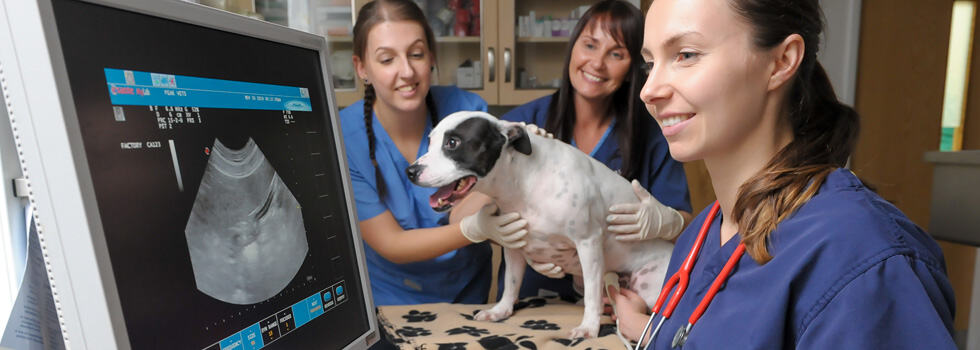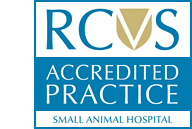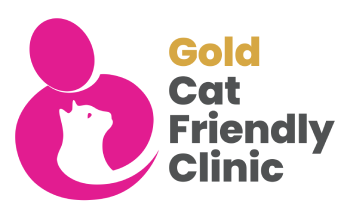Flea Treatment for dogs in Sheffield
All dogs are prone to worms, and some can be quite dangerous, such lung and heartworm.
Use of effective, preventative flea and worm treatments in Sheffield against common fleas, ticks, and worms throughout your pet's life is crucial for the long-term health and well-being of your family and pet. Practising prevention is more economical and simpler than seeking a cure.
Based on your dog's lifestyle and behaviour, we will collaborate with you to conduct a risk assessment in Sheffield to ascertain the proper course of flea and worm treatment for your dog.
Parasite Control across Sheffield
Fleas are more than simply an annoyance and cause of pain. They have the ability to spread more dangerous illnesses. Unfortunately, there is no fast remedy for fleas, so treating them requires constant attention. The ability of fleas to survive for months without a host is their main drawback.
Flea and Worm Treatment
Numerous worms have the potential to infect your pets, endangering both your household and your pet. Roundworms, hookworms, lungworms, and tapeworms are among the many worms that infest pets in Sheffield and the UK. Some worms have a daily production rate of over 100,000 eggs, which are then transmitted through the pet's excrement and dispersed around the home.
Worm eggs that have travelled through your pet's excrement may inadvertently end up in your family's diet. After the eggs hatch in your digestive system, the worms may move on to other bodily regions, including as the brain and eyes, where they may cause dangerous infections.
Worms pose a yearly risk to both your household and your pet. It's critical to take preventative measures proactively, utilising the greatest solutions available to keep children safe. Slugs and snails can transmit lungworm, a potentially deadly parasite that is not addressed by many over-the-counter medications. Get in touch with Peak Vets in Sheffield right now to learn more.
Please be advised that many treatments available for purchase elsewhere may not be able to treat every type of flea and worm that your cat may contract. Sheffield offers a wide variety of flea and worm treatments, including as pills, liquids, powders, and spot-ons.
Protecting Your Pet from Ticks
As a frequent parasite that may harm pets, ticks pose a concern to pets. At Peak Vets Sheffield, we advise pet owners to take precautions against tick bites and to be aware of the hazards involved.
Pets can get illnesses from ticks, including Lyme disease. For pets, these illnesses can result in major health issues and, in rare circumstances, even death. It is crucial to take precautions in order to shield your dogs from tick attacks.
Tips to prevent Ticks:
- Apply a tick preventive treatment: There are several options for tick prevention items on the market, including collars, spot-on treatments, and oral drugs. These are very successful prophylactic medicines that eliminate ticks before they can bite your pet.
- Regularly check your pet for ticks: Make sure to give your pet a thorough tick inspection after any time spent outside. Although they can attach themselves to any part of the body, ticks most frequently appear on the head, ears, neck, and feet. If you come across a tick, carefully remove it with tweezers, taking care to remove the complete insect without crushing it.
- Maintain a clean garden: Tall grass and other plants are ideal habitat for ticks. The number of ticks in your yard may be decreased by maintaining your garden and keeping your grass regularly trimmed.
- Stay off of forested or brushy areas while you walk: Ticks are more likely to bite in these locations, so staying away from them can help lower your chance of getting bitten.
- Speak with your veterinarian: They can advise you on tick prevention products and make recommendations depending on the particular requirements of your pet.
You may lessen the danger of tick bites for your dogs by implementing these suggestions and adopting precautionary steps. Give Peak Vets in Sheffield a call right now if you have any worries or inquiries regarding tick prevention for your pet.
Fleas and Worms in Sheffield
It's possible to pick up worms, fleas, and other parasites at Sheffield parks.
Parasites thrive in parks, especially during the warmer months of April through October. You don't want to deny your cherished pet the ability to socialise with other people or to spend as much time outside as possible as a pet owner. What should a pet owner do, though, if it appears that all the other animals are playing with slugs and other parasite carriers and itching and scratching?
What happens to my pet if they don't have flea and worm treatment?
When it comes to worm treatment, there may be severe consequences if ignored. Depending on the type of worm your pet can experience irritation such as intestinal blockages, obstruction of blood flow in the heart, artery inflammation, anaemia, and even death if left untreated.
Can you get combined flea and worm treatment for pets?
There are combined flea and worm treatments you can get for your pets, also known as an all-in-one flea and wormer. However, it's always best to consult your veterinary practice as these treatments don't cover some types of worms. Your pet may also have complications that combined treatments don't cover.
How often does my pet need flea and worm treatment?
Once every month, you should treat your pet for fleas, and every two to three months, or even more frequently, for worms. Depending on your pet's lifestyle, talk to your vet about the best course of action.
How long should I wait between worming and flea treatments?
Many people wonder if they can treat their cats for fleas and worms at the same time or how long they should leave between treatments. Depending on the two treatments being administered you may need to wait either 48 hours or two weeks between treatments. Please ask your vet when picking up your flea and worm treatment how to apply the two treatments most effectively and safely.
Do indoor cats need flea and worm treatment?
Every cat, even indoor cats, need regular flea and worm preventative treatments. It is a common misconception that an exclusively indoor cat does not need these treatments – this is not true at all. Fleas commonly travel on clothes and bags and so may be brought into the house at any time. A cat could even pick up fleas during a trip to a vet, especially where other pets may not have been treated.
Does my rabbit need flea and worm treatment?
You must consistently employ effective, preventative medicines against the most prevalent parasites throughout the lifespan of your rabbit to ensure their wellbeing and long-term health, as well as that of your family and Rabbits. Keep in mind that prevention is much simpler and less expensive than treatment. Rabbits also suffer from several other parasites and conditions, such as Mites, Flystrike, and E. cuniculi.







